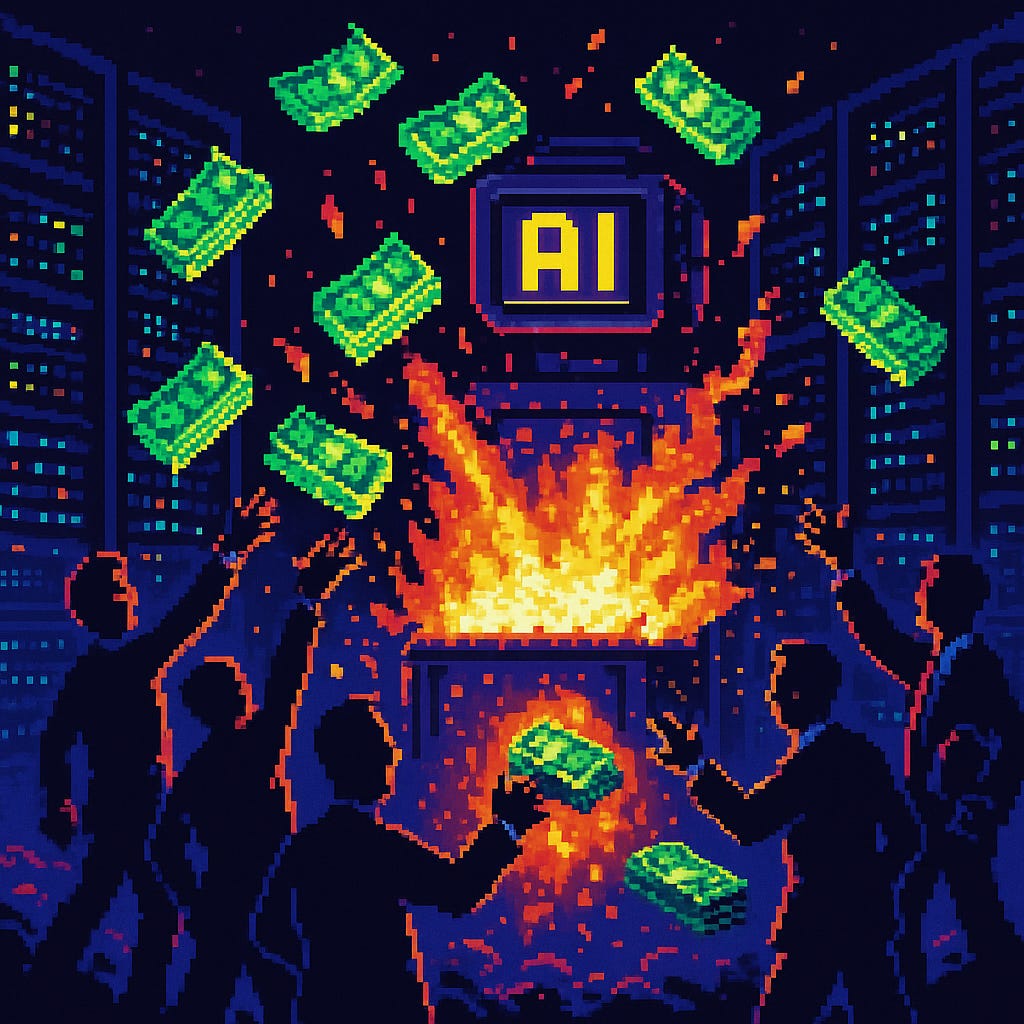is "value coding" the next trend (again)?
and how cost dynamics are accelerating vibe coding's end
The recent pricing model overhaul from AI-native code editor Cursor has sent developers scrambling.
Previously, users had a generous 500 quota of Claude Sonnet, one of the best models out there for coding.
All this for just $20 per month.
This empowered AI aficionados and non-technical people to give that app idea they had on the shelf a try for minimal costs.
Now, they moved to a usage-based pricing—with premium tiers hitting $200 monthly for unlimited access.
With that, vibe coding just became way too expensive.
The era of venture-capital-subsidized vibe coding just ended.
Welcome to the age of deliberate, cost-conscious AI utilization.
For two years, developers lived in a golden age of AI assistance.
Successive waves of VC funding created a boom of developer tools offering powerful large language models for pocket change.
Developers grew accustomed to constantly querying Claude Opus, regenerating answers on a whim, using AI as an infinite sounding board.
This was “vibe coding”—exploratory, ambient AI use where interaction cost was effectively zero.
But Cursor's decision exposes an uncomfortable truth: that model was never sustainable.
Every API call, every generated token, every "chat with your codebase" query burns real compute resources from providers like OpenAI or Anthropic.
Toolmakers absorbed these costs as customer-acquisition strategy, planning to monetize later.
Later just arrived.
💸 Economic Reality Bites Back
Traditional software has near-zero marginal cost per user.
This is not the case with AI.
AI-powered services carry significant, recurring marginal costs.
Traditional software resembles a book—written once, copied infinitely at virtually no cost.
AI services are like hiring a consultant for every single interaction.
Each query burns compute cycles, electricity, money.
Flat-rate models created dangerous asymmetry:
Power users generated hundreds of dollars in API costs while paying tiny fees.
While Cursor's Pro tier offers approximately 500 Claude Sonnet requests for $20 monthly, developer communities report runaway usage exceeding $60 daily.
Poor planning leads to single tasks triggering 20+ redundant tool calls, massive costs without proportional value.
Cursor leads a market-wide transition.
End users now pay for AI compute directly.
Simple survival drives this change.
No company can subsidize users' operational costs indefinitely.
Usage-based pricing ties consumption to bills transparently and sustainably.
Individual developers face sticker shock, but it forces overdue reckoning with AI's actual value.
This transition elevates AI assistants from cheap utilities to high-value professional services, like AWS or Google Cloud.
You don't leave x-large EC2 instances running for fun.
You architect systems for efficiency.
🛠️ From “Vibe Coding” to Deliberate “Value Coding”
Pricing changes force evolution in developer behavior.
Subsidized access ends.
“Vibe coding” gives way to disciplined “value coding.”
Value coding means making conscious, strategic decisions about AI assistance based on clear cost-benefit analysis.
Interactions shift from casual chats to deliberate resource allocation.
Key behaviors change:
Strategic Model Selection
Flat-rate plans incentivized using only powerful models available. In usage-based worlds, that's fiscally irresponsible. Value coding matches models to tasks.
Simple boilerplate? Use Haiku or local models.
Complex architectural refactoring? Flagship models justify their cost through solution value.Rethinking the “Regenerate” Button
That button symbolized vibe coding—zero-cost answer variations. Now it's expensive. Better prompt engineering becomes economically motivated.
Refine initial prompts, provide context, iterate queries for first-try success.
Prompt engineering transforms from niche skill to core economic competency.Quantifying Return on AI Investment
Developers must justify AI expenditure. A $200 monthly seat demands corresponding productivity increases.
Builder.io successfully uses Cursor for complex automation while emphasizing "manual supervision is still recommended to prevent AI from going off track."
Disciplined approaches prevent redundant tool calls that inflate costs without value.
This shift channels creativity more effectively.
Considering each interaction's cost encourages deeper, thoughtful technology engagement.
We become tool masters, not casual users.
🧑💻 New Skills for AI-Powered Development
Market trends redefine developer proficiency. Steve Sewell, Builder.io's Co-founder, states:
"I would rather hire developers who use Cursor well than developers who refuse and hand-code everything."
Sewell argues further:
"If we define coding skills as the ability to build good products in a good way with code... then I don't think a person needs to hand-code software all day, every day, to maintain or increase these skills."
Valuable skill becomes intellectual building, which AI augments.
An emerging AI developer skill stack includes:
Economic Prompting – Crafting queries that elicit high-value responses from cost-effective models, like asking the right question to the right expert at the right time.
Resource Management – Knowing when to use local models, cheap APIs, or state-of-the-art models—and justifying decisions. Junior consultants handle basic research; senior partners tackle strategic decisions.
Workflow Integration – Building repeatable workflows using AI for high-leverage tasks (unit test generation, complex documentation, architectural planning) rather than trivial ones.
Engineering leaders face challenges of creating supportive cultures. Forget micromanaging API calls. Provide budgets, establish best practices, train teams in value-coding thinking. Set expectations: AI is a powerful, premium resource requiring intent.
Teams navigating this change successfully develop significant competitive advantages, shipping better software faster and more economically than peers who fail to adapt.
What’s your take on Cursor’s recent changes?
Follow along for more AI related content!




I assume a lot of people vibe coding won’t be value coding, due to skills gap.